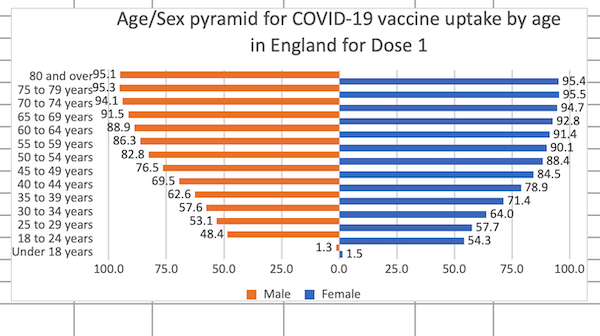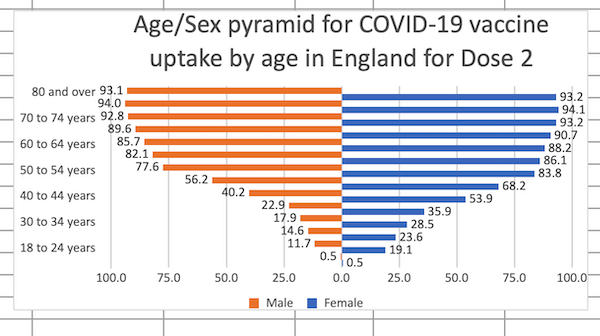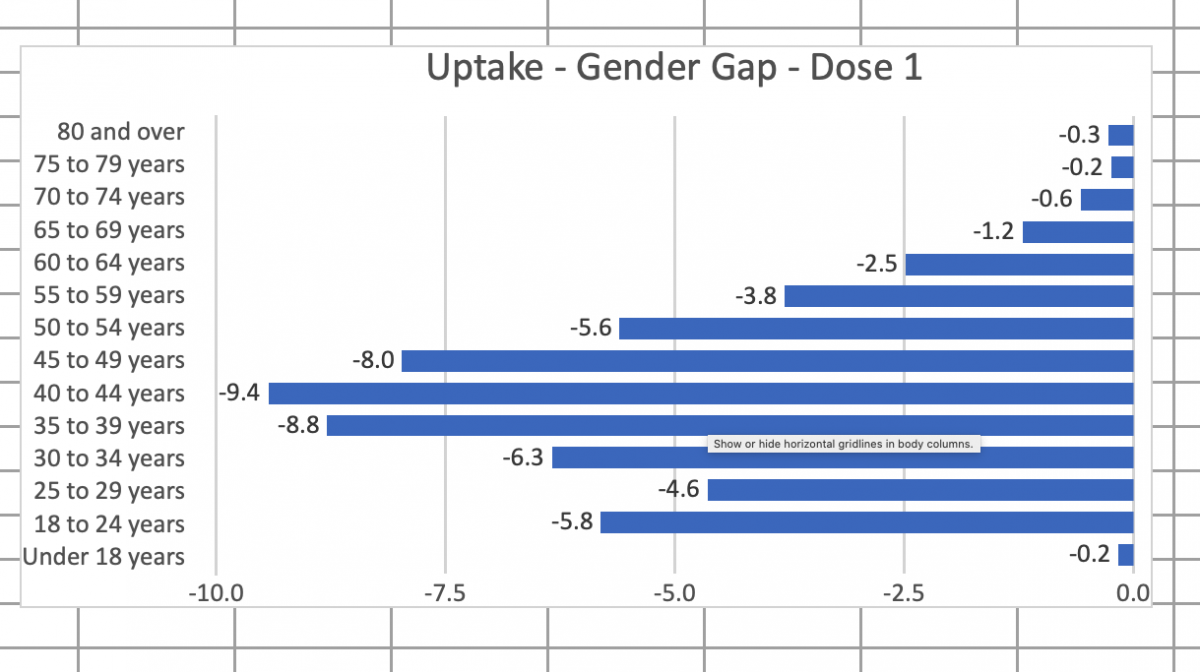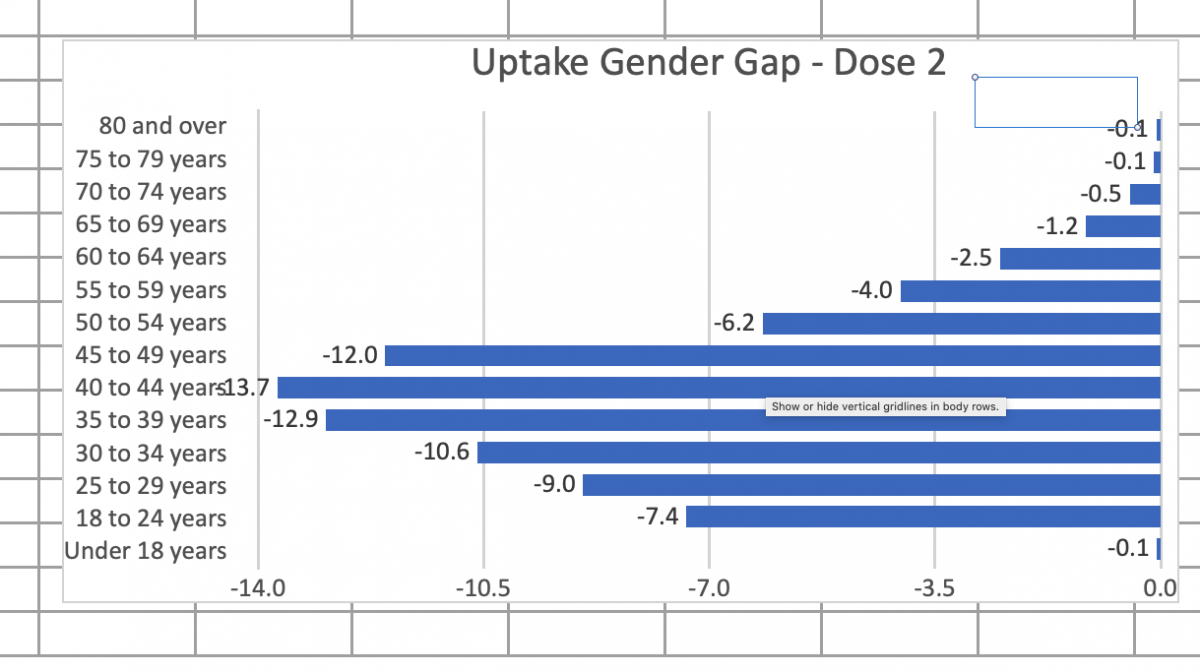HEALTH WARNING
We are no longer updating our Covid-19 hub regularly. That includes this page. Follow the link below for the latest.
We are no longer updating our Covid-19 hub regularly. That includes this page. Click here for the latest.
Men appear less likely to get the vaccine.
The charts below show that in all age groups of men of working age (under 65), fewer men are being vaccinated than women. The gender gap is wider for the second dose than the first.
The gap is most pronounced in people in their 30s and 40s. This data is from the ONS. The NHS uses a slightly different data set but the proportions are similar.
All this is despite the fact that men, like women, are very pro-vaccine in the UK. Only 4% of men 'vaccine-hesitant' (the same figure as for women). 'Vaccine-hesitant' adults are those who:
These charts show the proportion of men and women who have had the first and second dose of the vaccine up to the week-ending 23 July 2021 (week 29)


These charts show the difference between the proportions of vaccinated men and women in percentage points.


|
The Men’s Health Forum need your support It’s tough for men to ask for help but if you don’t ask when you need it, things generally only get worse. So we’re asking. In the UK, one man in five dies before the age of 65. If we had health policies and services that better reflected the needs of the whole population, it might not be like that. But it is. Policies and services and indeed men have been like this for a long time and they don’t change overnight just because we want them to. It’s true that the UK’s men don’t have it bad compared to some other groups. We’re not asking you to ‘feel sorry’ for men or put them first. We’re talking here about something more complicated, something that falls outside the traditional charity fund-raising model of ‘doing something for those less fortunate than ourselves’. That model raises money but it seldom changes much. We’re talking about changing the way we look at the world. There is nothing inevitable about premature male death. Services accessible to all, a population better informed. These would benefit everyone - rich and poor, young and old, male and female - and that’s what we’re campaigning for. We’re not asking you to look at images of pity, we’re just asking you to look around at the society you live in, at the men you know and at the families with sons, fathers and grandads missing. Here’s our fund-raising page - please chip in if you can. |